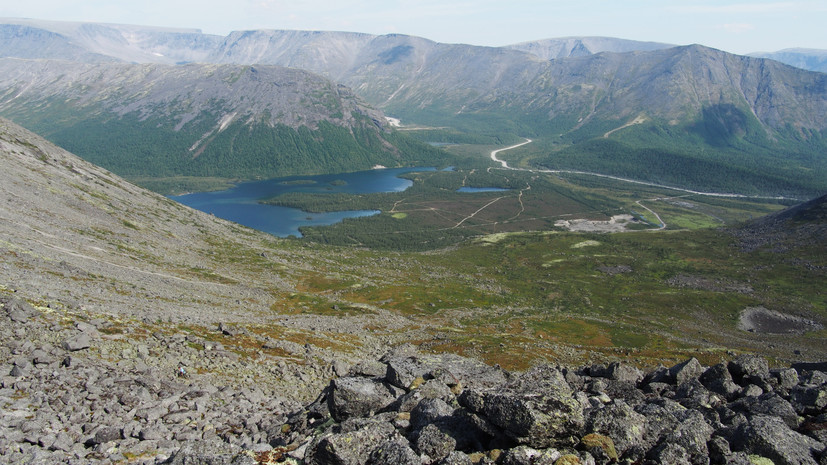Scientists from the Laboratory of Evolutionary Biogeochemistry and Geoecology of the Vernadsky Institute of Geochemistry and Analytical Chemistry of the Russian Academy of Sciences (GEOKHI RAS) have summed up the results of 30 years of monitoring the state of lakes on the Kola Peninsula in the Arctic. Experts have found that as average annual temperatures increase due to global warming, more and more organic matter, phosphorus and nitrogen enter water bodies. This was reported to RT by the press service of GEOKHA. The study was supported by a grant from the Russian Science Foundation. The results are published in the journal Geochemistry.
As the authors of the work noted, in the Arctic region within the continental tundra and on the islands there are many small lakes, hidden under the ice for most of the year. Such lakes used to be "low-productive" with extremely low levels of organic matter and nutrients. However, the situation has changed in recent years. This was shown by the results of monitoring conducted by a team of scientists on the Kola Peninsula over the past 30 years.
- Gettyimages.ru
- © Paul Souders
The goal of the researchers was to identify long-term changes in the content of nutrients and organic matter in the lakes of the Kola North, as well as to assess the impact of global warming on them.
"Analysis of the collected data has shown that over the past twenty years, the number of water bodies with a low nutrient content in the region has significantly decreased and the number of so-called more "productive" lakes has increased by 45%," said Tatyana Moiseenko, head of the Department of Biogeochemistry and Ecology of the Russian Academy of Sciences, corresponding member, in an interview with RT.
Changes were recorded in those reservoirs that are located at a great distance from settlements and industrial facilities. This means that the cause of this phenomenon was not industrial and domestic effluents of pollutants, but global climate change - an increase in average annual air temperatures. Global warming is altering water bodies, in particular leading to biogeochemical migration of phosphorus as well as organic matter from watersheds.
"Our calculations have shown that by the last decade there has been an increase in phosphorus flows from the catchment area with a higher intensity, especially to the lakes of the forest-tundra and northern taiga zones," Moiseenko added.
Pollution of natural water bodies with organic substances, as well as phosphorus and nitrogen, can disrupt the functioning of the ecosystem, can lead to more intensive development of blue-green algae, i.e. "blooming" of waters, to deterioration of water quality and changes in biodiversity in the water systems of the Arctic regions.

